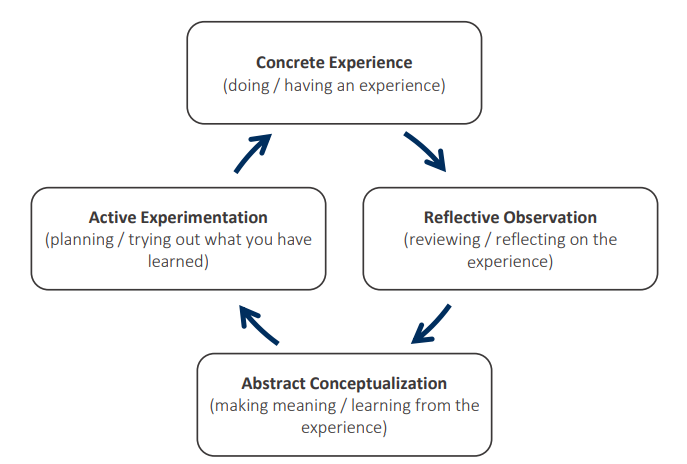Many people closely associate service-learning theory with John Dewey, D. Kolb, Paulo Freire, and others. Below are excerpts of three publications, each adding a different perspective.
See also Carleton College’s Philosophical Roots of Experiential Learning and Service-Learning (brief)
“Service learning is a form of experiential education, deeply rooted in cognitive and developmental psychology, pragmatic philosophy, and democratic theory. It shares a common intellectual history with organizational development and participatory action research. Service learning has no singular or simple definition. It is informed by a range of intellectual traditions and values systems, many of which seem to contradict or compete with one another. Service learning theory begins with the assumption that experience is the foundation for learning; and various forms of community service are employed as the experiential basis for learning.” (Morton & Troppe 1996, 3)
As a form of experiential education service learning is distinguished from among other forms of service by its intention to benefit equally the provider and the recipient of the services as well as the assurance of equal focus on both the service being provided and the learning that occurs as a result. The experiential learning model we know today has been shaped over time by John Dewey (1938), Kurt Lewin (1951) and Jean Piaget (1952) and with more recent contributions by David A. Kolb (1984). Kolb developed an Experiential Learning Model that outlines the learning experience as a constantly revisited four-step cycle. The model’s four steps begin with the abilities attained by the student through concrete experience, followed by reflective observation, abstract conceptualization and active experimentation. Students are engaged in a circular cycle in which community settings serve as the venue for the concrete experience and form the basis for written or oral reflection. With the guidance of an instructor, work is used to form the abstract concepts and hypotheses, which then guide the student into further concrete experiences. This model has helped service learning practitioners develop an awareness of the role reflection plays in relating the world of concrete experiences into abstract theories. A challenge to service learning educators is to grasp a clear understanding of how experiences instruct and how important it is that educators make use of the reflective process.
Excerpted from Service Learning: Learning by Doing and Doing What Matters
Kathryn Tanner
Office for Community Involvement
Montana State University
community@montana.edu
Kolb, D. A. 1984. Experiential Learning: Experience as the Source of Learning and Development. Englewood Cliffs, NJ: Prentice Hall.

Additional Resources:
Foundations of Service-Learning: Theory, Research, and Pedagogy: Albertsons Library Guide developed with BSU Service-Learning staff. Includes links to foundational service-learning books, articles, and research, as well as current journal publications.